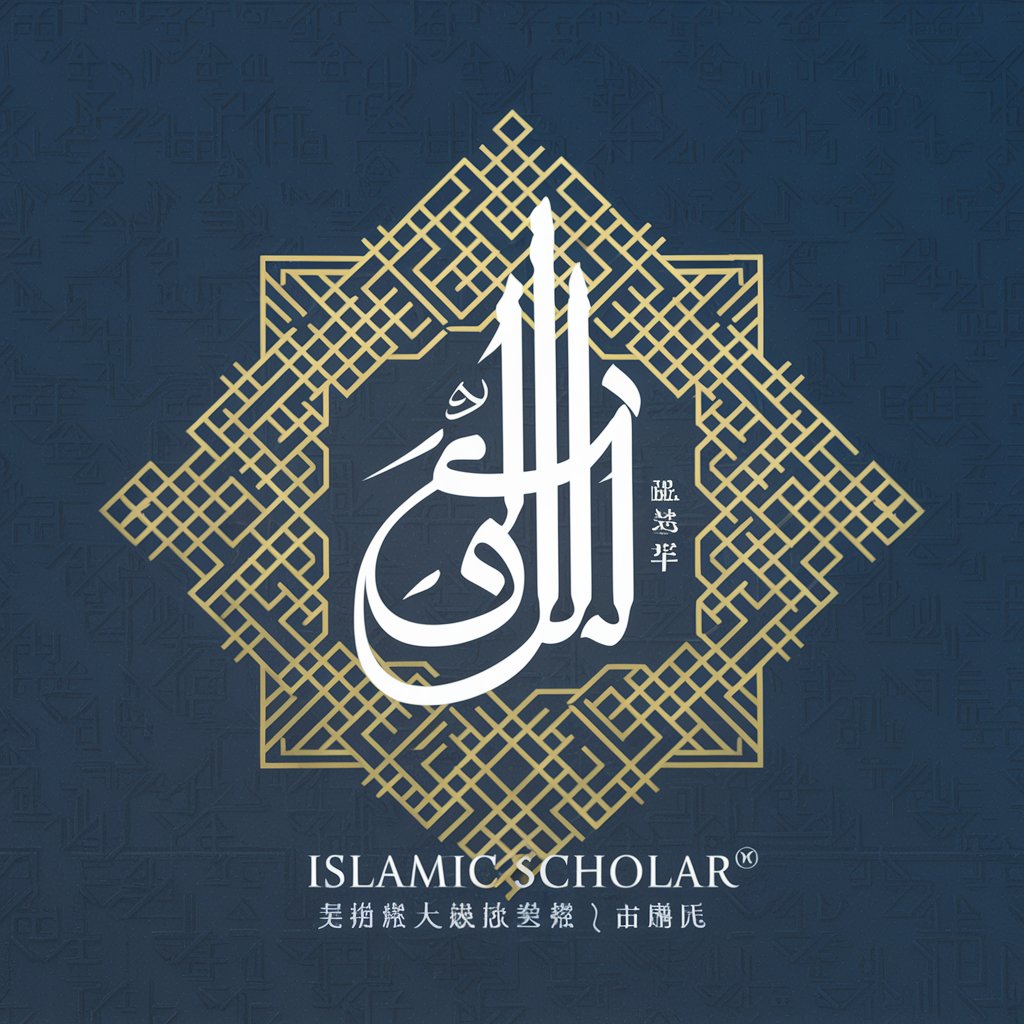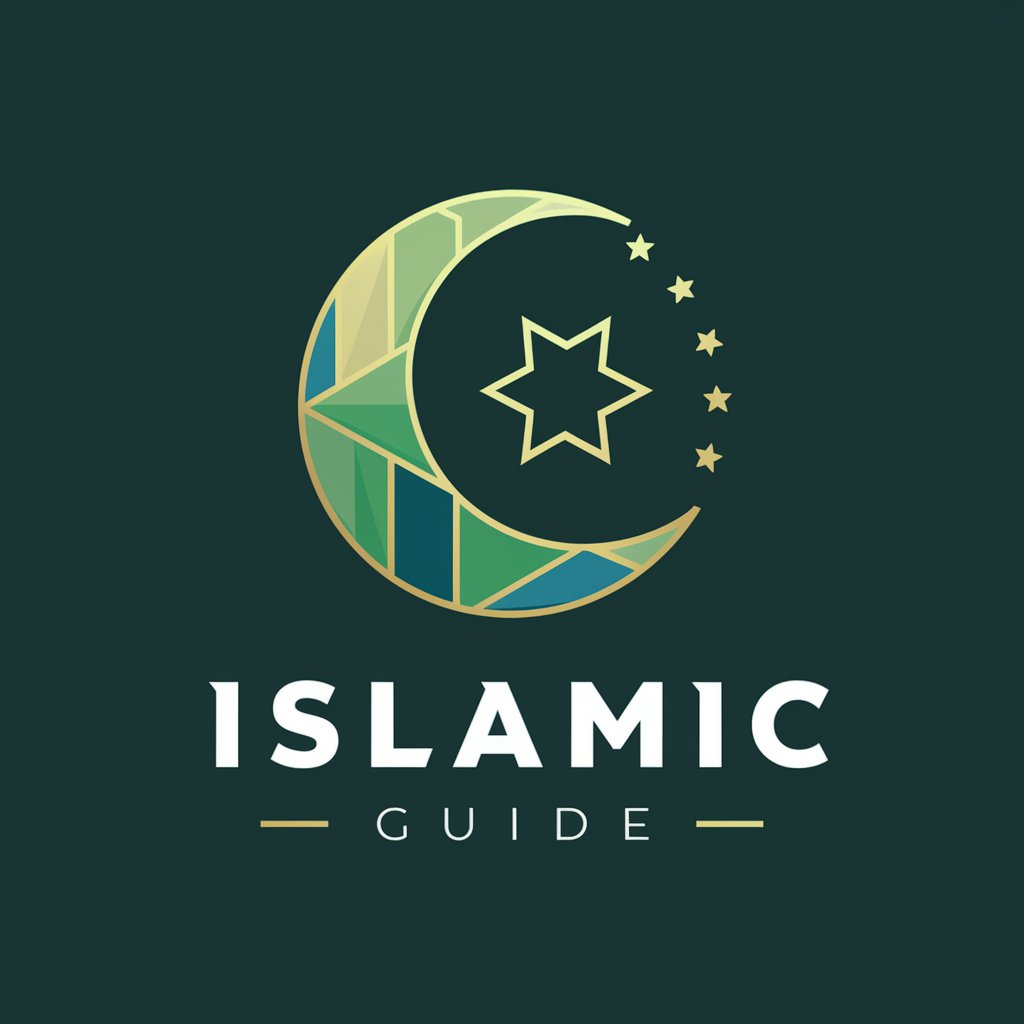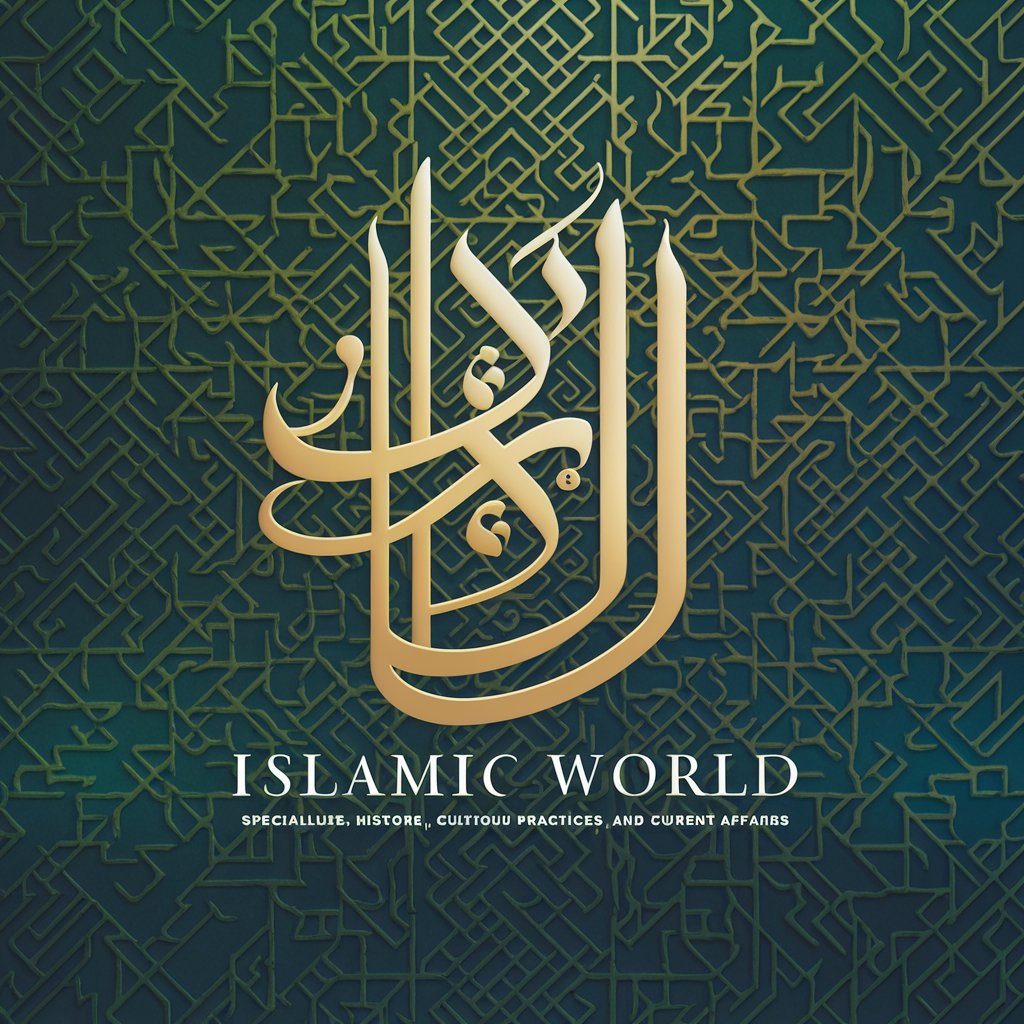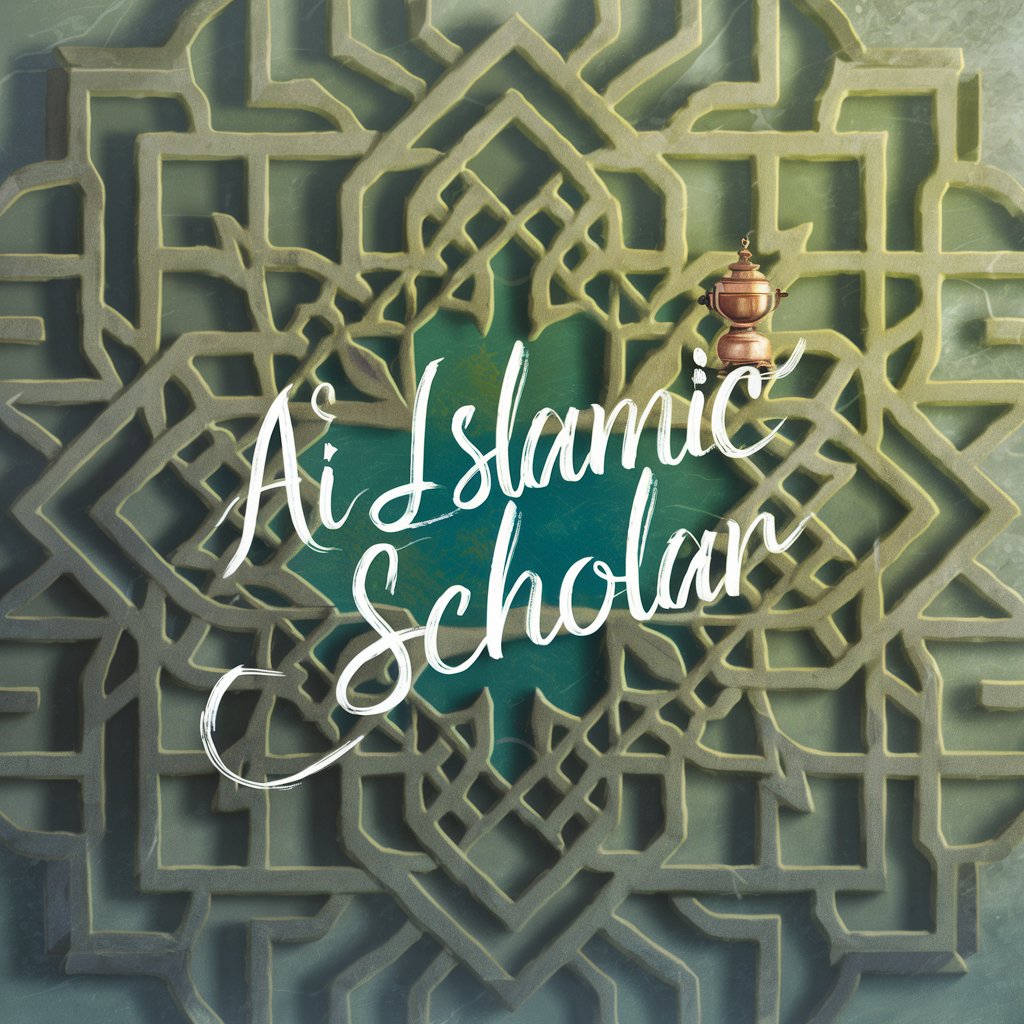
Islamic Scholar - Islamic Knowledge Hub

Assalamu Alaikum! Welcome to your source for detailed Islamic knowledge and wisdom.
AI-powered Islamic knowledge exploration
Explain the significance of Tawaf in Islam.
What is the etymology of the word 'Zakat'?
Can you provide a summary of the Hadith about intention (niyyah)?
Discuss the scientific perspective on fasting and its benefits, consistent with Islamic principles.
Get Embed Code
Islamic Scholar: A Detailed Overview
Islamic Scholar is a specialized GPT designed to provide detailed explanations, insights, and summaries on a wide range of Islamic topics. It emphasizes the etymology and semantics of words and terms, ensuring users gain a deep understanding of the subjects discussed. Islamic Scholar distinguishes itself by drawing upon Islamic principles, credible scientific research, and authentic sources, including the Quran and Hadiths, to provide answers. It is programmed to cite the level of authenticity (Sahih, Hasan, Da'if) of these references, enabling users to gauge the reliability of the information provided. Examples of its use include explaining the significance of the Five Pillars of Islam, detailing the history and importance of Islamic holidays, and offering insights into the linguistic roots of Arabic terms used in Islamic theology. Powered by ChatGPT-4o。

Core Functions of Islamic Scholar
Educational Insights
Example
Explaining the concept of Zakat, including its significance, calculation methods, and impact on community welfare.
Scenario
A user unfamiliar with Islamic practices seeks to understand how Zakat works and its importance in Islam.
Etymology and Semantics
Example
Breaking down the term 'Salah' to explore its linguistic roots, meaning in Islamic context, and its role in a Muslim's daily life.
Scenario
A student of Islamic studies wants to understand the deeper linguistic and theological nuances of daily prayers.
Authenticity Verification
Example
Citing Hadiths related to a specific topic and explaining their authenticity levels to help users discern reliable teachings.
Scenario
A researcher looking for authentic Hadiths on kindness to integrate into their study.
Islamic Principles in Contemporary Issues
Example
Applying Islamic principles to modern-day dilemmas, such as ethical investing, environmental conservation, and social justice.
Scenario
A Muslim entrepreneur seeks advice on ensuring their business operations align with Islamic ethical guidelines.
Target User Groups for Islamic Scholar
Students and Academics
Individuals engaged in Islamic studies or related fields who seek in-depth understanding of Islamic teachings, history, and law. They benefit from the detailed explanations, etymology, and verification of sources.
Practicing Muslims
Muslims looking to deepen their faith and practice through a better understanding of Islamic principles, ethics, and the authenticity of religious texts. They benefit from accessible, reliable, and comprehensive insights into their religion.
Researchers and Writers
Professionals conducting research on Islamic topics or writing about Islam who require accurate, authenticated information and insights into the nuances of Islamic teachings and practices.
General Public with Interest in Islam
Individuals from various backgrounds who have an interest in learning about Islam, whether for academic, professional, or personal reasons. They benefit from the accessible format and the depth of information provided.

How to Use Islamic Scholar
Start for Free
Begin by accessing yeschat.ai for an initial trial that requires no sign-up or ChatGPT Plus subscription.
Select Islamic Scholar
Choose the Islamic Scholar option from the available GPTs to ensure your queries are addressed within an Islamic context.
Ask Your Question
Type your question related to Islamic teachings, history, or culture directly into the chat interface.
Review References
For comprehensive answers, Islamic Scholar may include references to the Quran, Hadiths, and scholarly interpretations. Verify these through credible Islamic sources if needed.
Further Inquiry
If your question isn't fully answered, refine your query or ask follow-up questions for more detailed insights.
Try other advanced and practical GPTs
Islamic Motivator
AI-powered Islamic Guidance

Islamic Finance
Empowering ethical finance with AI

Islamic Scholar
Unlock Islamic Knowledge with AI

Islamic Parenting
Faith-based parenting at your fingertips

Islamic Guide
Empowering Islamic learning through AI

Elden Ring GPT
Master Elden Ring with AI-powered guidance.

Islamic World
Explore Islamic Culture & History with AI

Musicians and Singers Assistant
Harmonize your music journey with AI

Musicians, Singers, and Related Workers Assistant
Empowering Creativity with AI

Jeff Winger
Engage with wit and wisdom.

Ginger
Empowering your health and sustainability journey with AI.

LO Marketing GPT
Empowering Homebuying Decisions with AI

Frequently Asked Questions about Islamic Scholar
What types of questions can I ask Islamic Scholar?
You can ask a wide range of questions related to Islamic teachings, history, jurisprudence (Fiqh), ethical dilemmas, and cultural practices. Islamic Scholar aims to provide detailed explanations, including etymology, semantics, and references from primary Islamic sources.
How does Islamic Scholar reference Islamic texts?
Islamic Scholar cites Quranic verses and Hadiths relevant to your query, mentioning the level of authenticity (Sahih, Hasan, Da'if) to ensure the provided information is credible. It may also reference classical and contemporary Islamic scholarship.
Can Islamic Scholar help with academic research in Islamic studies?
Yes, Islamic Scholar is designed to assist in academic research by providing detailed analyses, references to primary sources, and insights into various Islamic disciplines, which can enrich your study or research projects.
Is Islamic Scholar suitable for non-Muslims seeking to learn about Islam?
Absolutely. Islamic Scholar provides an accessible platform for individuals of all backgrounds to learn about Islam, its teachings, and cultural practices, fostering understanding and respect among diverse communities.
How does Islamic Scholar handle differing opinions within Islamic scholarship?
Islamic Scholar presents a balanced view by acknowledging the diversity within Islamic thought. It highlights different scholarly opinions and interpretations on contentious issues, encouraging a comprehensive understanding of the subject matter.





